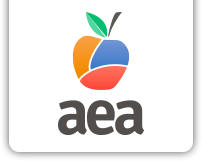AEA is closely monitoring the latest guidance surrounding the COVID-19 pandemic from the CDC, the Arkansas Department of Health and the Arkansas Department of Education. We've developed this FAQ based on the questions we are receiving from our members around the state.
The Governor shut down the schools until March 30, why am I still being directed to report to work?
In his March 15 announcement, Governor Asa Hutchinson said he was closing the schools for “on-site instruction.” This means students will not be physically present in the classroom setting. The Governor left all other decisions about handling the closure to local superintendents and school boards. This means local superintendents are free to require all school employees to work at their regular worksite during the closure for on-site instruction. “AMI = alternate methods of instruction not necessarily alternate location of work site.”
I am an ESP. Will I get paid during the school closure for on-site instruction?
The general rule is that ESPs are required to work in order to be paid. Maintenance and custodial staff reporting to work to clean and disinfect buildings and buses will be paid for their time. Cafeteria staff reporting to work to prepare meals authorized under a USDA waiver for students in need will be paid. Transportation staff delivering food will be paid. Any other staff reporting to work will be paid. There is proposed legislation in the United States Congress which might allow employers to be reimbursed for payments made to employees during this time, but that legislation has not yet become law. If it is possible for you, show up for work and continue working.
You may qualify for unemployment if you have been directed not to come to work and are not being paid or if your hours have been reduced. Unemployment claims can be filed online and this process has been expedited.
I am being told to report to work. Can my administrator legally require me to report to work?
Yes. The Governor’s order only closed the schools for “on-site instruction.” The Governor gave wide discretion to local superintendents and school boards on how to manage employees.
What are my options if I am afraid of reporting to work?
If you are not comfortable with reporting to work, and want to keep your job, you have a few options.
You can utilize leave during this time. If you are a caregiver, you are eligible for FMLA leave to care for yourself or a family member. Please follow all requirements from your school district to apply for FMLA leave in advance.
If you are ill, please contact your employer before reporting for work. If you are ill, sick leave can be used during this time. There is proposed legislation in the United States Congress which might require employers to grant additional days of paid sick leave to employees during this time, but that legislation has not yet become law.
You may qualify for unemployment if you have been directed not to come to work and are not being paid or if your hours have been reduced. Unemployment claims can be filed online and this process has been expedited.
What does the Department of Education say?
The following guidance from DESE has been shared with school superintendents. AEA will follow up with additional information as it becomes available.
Staffing during extended closure
We continue to have questions related to staffing during AMI days, related to both certified and classified staff requirements. The directive is that schools must be closed to on-site instruction; however, there are essential personnel who will need to continue to work, and there are essential duties that must be performed. Each district must identify essential personnel and essential work functions and will have to call upon staff accordingly. In some cases, essential staff may include teachers coming on-site to prepare AMI packets or to deliver virtual instruction from their classroom site. Classified staff may be needed to assist with meal delivery or assistance with AMI packets.
Individuals should adhere to the Arkansas Department of Health’s recommendations for social distancing and group size limitations. Individuals who have been advised or required to quarantine should follow the ADH requirements. No one should report to work if he/she is sick. Districts should recognize there are staff members who have higher risks due to health conditions or live in a household with persons at a higher risk and might need added flexibility. Districts have broad flexibility in providing opportunities for employees to work modified hours or to work from home. As a way to address concerns with docking pay of contracted staff who can’t or shouldn’t come to work, placing those individuals on paid administrative leave is an option.
Additional Provisions Suspended
The Division of Elementary and Secondary Education (DESE) has continued to identify regulatory statutes, orders, and rules that are hindering or preventing the rapid response necessary to combat the spread of and recovery from COVID-19 per the Governor’s Executive Order 20-06 dated March 17, 2020. Provisions suspended by DESE can be found HERE.
Continuation of AMI / AMI Support
Now, more than ever, our students need their teachers and principals. AMI days cannot be expected to be a replication of on-site instruction days. AMI days can be relevant, engaging, and meaningful for all students. ADE produced this document to help guide educators and school districts during this extended closure of our schools.
The Arkansas Division of Elementary and Secondary Education (DESE), in collaboration with state partners providing support for schools using Alternate Methods of Instruction, has released a document titled, Arkansas Continuing Education Options for PK-12. This document outlines the various options districts should consider at this time.
Arkansas AMI Learning Guides, developed through a partnership between DESE and AR PBS, provides support for students, parents, and teachers grades PK-8. More information may be found by watching the recorded presentations on the AMI Webpage:
AMI Hotline
The Division of Elementary and Secondary Education (DESE) has established an AMI Hotline that will operate from 8:00 am- 8:00 pm daily, beginning Thursday, March 26, 2020. The AMI hotline will be staffed by DESE personnel and is intended to support school district officials, teachers, parents, and students who have AMI questions.
The AMI hotline number is: 1-833-353-6050.
Telehealth
On March, 23, 2020, the Division of Medical Services (DMS-Medicaid) released a policy update memorandum regarding the use of telehealth for Occupational, Physical, and Speech Therapy during the COVID-19 outbreak. This allows for therapy to be provided in the home of a student via telehealth and widens the technology options for this purpose. The DMS memorandum may be found HERE.
Additional information will be made available on the DESE COVID-19 website.
How do I protect student privacy while providing remote learning opportunities?
Decision-makers should consider the implications of digital learning based on the requirements of the Family Educational Rights and Privacy Act (FERPA). FERPA protects the privacy of student education records and dictates the types of information that educational agencies can collect, maintain, and disclose with permission. The statute applies to school districts, public schools at the elementary and secondary levels, and postsecondary institutions. In addition to the underlying equity issues, digital learning provides challenges related to protecting student education records under FERPA, particularly students’ personally identifiable information (PII). On March 30, 2020 the Student Privacy Policy Office (SPPO) at the U.S. Department of Education hosted a webinar to provide guidance around student privacy requirements under FERPA as educators and students shift to digital learning environments in response to COVID-19.
During school closures, digital learning environments can include learning activities that are carried out through various media such as online educational web services, video conferencing, forums, chat rooms, messaging and other digital learning software apps. Many of these require disclosure of student PII to providers of digital learning services. These disclosures are allowable under the school official exception to the general consent requirement of FERPA, but providers of these services must meet certain criteria. Read this NEA memo for more guidance.
How do I ensure I do not violate HIPAA protections while providing remote learning opportunities?
The Office for Civil Rights (OCR) at the U.S Department of Health and Human Services (HHS) issued a bulletin to ensure entities covered by civil rights authorities keep in mind their obligations under laws and regulations that prohibit discrimination on the basis of race, color, national origin, disability, age, sex, and exercise of conscience and religion in HHS-funded programs, including in the provision of health care services during COVID-19.
OCR is particularly focused on ensuring that covered entities do not unlawfully discriminate against people with disabilities when making decisions about their treatment during the COVID-19 health care emergency.
The bulletin also reminds health care covered entities of unprecedented HIPAA flexibilities recently made available by OCR in response to the COVID-19 emergency concerning:
- OCR's Notice of Enforcement Discretion allowing providers to serve patients where they are through commonly used apps like FaceTime, Skype, and Zoom to provide telehealth remote communications.:
- Guidance that empowers first responders and others who receive protected health information about individuals who have tested positive or been exposed to COVID-19 to help keep both first responders and the public safe.
- Guidance on how health care providers can share information with the CDC, family members of patients, and others, to help address the COVID-19 emergency.
Where can I find more information?
The Department of Education has set up telephone lines to respond to questions as the state addresses COVID-19. School personnel can contact the Department of Education at 1.803.505.0155. Contact the main COVID-19 Hotline at 1-800-803-7847.
The Department of Education has also created this webpage devoted to giving information about the state’s response to COVID 19.
This ADE Document outlines state statutes and regulations suspended by an executive order issued on 3/17/20.
This ADE Document provides guidance for Special Education during extended AMI.
The Department of Health has created this webpage devoted to giving information about the state’s response to COVID 19.
Do you have a question that doesn’t appear on our list? Send it to us using the contact form below! If it’s a universal question that can benefit others, we will share it out. (If you’re an AEA member with an individual question, please contact your local leader or AEA directly.)





